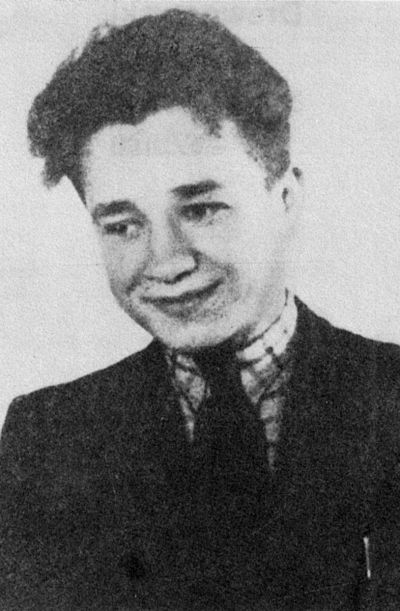Krystyna Wituska (1920–1944)

Krystyna’s letters to her parents and sister also survived the war. In them, she talks about the joy of small things: of spring, the twittering of birds and being able to wash her hair. Wituska submitted to her fate. She didn’t complain, although she certainly longed for freedom and her family. In her letter to her parents dated 9 May 1943, she writes:
“Dear parents! I hope that the censors won’t mind that I’m writing these final letters home in Polish. I have already received your loving and touching letters. Of course, I had to cry a bit when I read them, because I feel so sorry for you and constantly reproach myself for giving you so little joy and being only a cause of constant worry. But I breathed a sigh of relief when I read that you’re not feeling desperate, and that you haven’t given up hope. (...) I feel wonderful, and I am full of joy, which is why I sometimes have a bad conscience, because I am confronted with the thought that you are worried over there, or thinking goodness knows what, while I’m having such a good time here. There are now three of us here, and we all have the same problems. (...) You can’t imagine how good it feels to be among young people again and to be able to have really good talks with each other. I almost never think about what awaits me, since we simply don’t have time for reflection. We sing and crack jokes the whole day long, almost like silly schoolgirls. By the way, we feel as though we’re at school here, or at boarding school, because there are so many things that aren’t allowed, and we worry that we might get told off. (...) Keep your head held high, dear Mummy, and don’t worry about me, my one and only Daddy. It’s not for nothing that I’m your daughter, and I can bravely bear any fate and any misfortune.”[1]
In August 1943, Wituska gave a witness statement in the trial against Zbigniew Walc. That was the last time they saw each other. Walc was finally given a mild sentence: one year in prison, whereby the six months already served were taken into account. However, after serving his prison sentence, he was taken to Sachsenhausen concentration camp by the Gestapo, and later to the camp in Rottleberode, which was evacuated by the Nazis in April 1945. Zbigniew Walc was then moved to Gardelegen, where 400 other prisoners were being held. On 14 April, he and a thousand other camp inmates were driven by the Nazis into a barn, which was then set alight. Walc and nearly all the other prisoners died. Just one day later, US troops arrived in Gardelegen.
[1] Anna Morawska, Krystyna Wituska (12.V.1920 – 26.VI.1944), in: Miesięcznik Znak, XXI (9), Kraków 1969, p. 1159.





